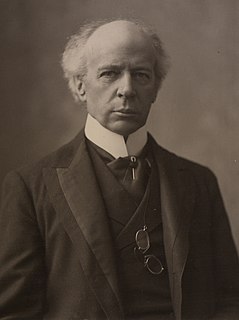A Quote by James Madison
The powers of the federal government ... result from the compact to which the states are parties, [and are] limited by the plain sense and intention of the instrument constituting that compact.
Related Quotes
There is one view of the subject which ought to have its influence on those who espouse doctrines which strike at the authoritative origin and efficacious operation of the Government of the United States. The Government of the U.S. like all Governments free in their principles, rests on compact; a compact, not between the Government & the parties who formed & live under it; but among the parties themselves, and the strongest of Governments are those in which the compacts were most fairly formed and most faithfully executed.
It is federal, because it is the government of States united in a political union, in contradistinction to a government of individuals, that is, by what is usually called, a social compact. To express it more concisely, it is federal and not national because it is the government of a community of States, and not the government of a single State or Nation.
The States then being the parties to the constitutional compact, and in their sovereign capacity, it follows of necessity, that there can be no tribunal above their authority, to decide in the last resort, whether the compact made by them be violated; and consequently that as the parties to it, they must themselves decide in the last resort, such questions as may be of sufficient magnitude to require their interposition.
A constitution, in the American sense of the word, is a written instrument by which the fundamental powers of the government are established, limited, and defined, and by which these powers are distributed among several departments, for their more safe and useful exercise, for the benefit of the body politic.
I see,... and with the deepest affliction, the rapid strides with which the federal branch of our government is advancing towards the usurpation of all the rights reserved to the States, and the consolidation in itself of all powers, foreign and domestic; and that, too, by constructions which, if legitimate, leave no limits to their power... It is but too evident that the three ruling branches of [the Federal government] are in combination to strip their colleagues, the State authorities, of the powers reserved by them, and to exercise themselves all functions foreign and domestic.
The government will make use of these powers only insofar as they are essential for carrying out vitally necessary measures.... The separate existence of the federal states will not be done away.... The number of cases in which an internal necessity exists for having recourse to such law is in itself a limited one.
In a very real sense, the Constitution is our compact with history . . . [but] the Constitution can maintain that compact and serve as the lodestar of our political system only if its terms are binding on us. To the extent we depart from the document's language and rely instead on generalities that we see written between the lines, we rob the Constitution of its binding force and give free reign to the fashions and passions of the day.



























